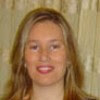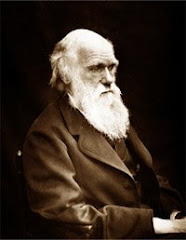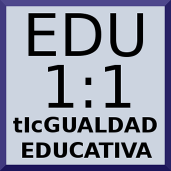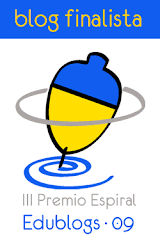It's five months since I wrote on this blog for the last time. I think that the last time I tried to blog about the PLE Conference I was so excited that any words that came into my mind weren't enough to describe it. I had just run out of words... anything I could write was n't good enough to be able to show you how happy I was feeling after having met you all! Now, after all the time I have spent checking PLEs, listening to your podcasts, watching your videos and writing about them in my assignments and other stuff, I need to come back to this blog.
The PLE Conference in Barcelona was my first international conference and now I can guess how lucky I was to start in this new world with you. Since then, there have been new conferences, which I enjoyed so much, and I have met you again, in Bilbao (EDUTEC2010) or in Lisbon (TICEDUCA10), but this was all because you were so kind to me that I felt inspired to carry on.
But the PLE Conference is even more special to me for a very important reason: the first version of the mind map, which I submitted as a poster, was the very first thing I had written after having lost my grandma forever - she passed away eight months and three weeks ago and it's the first time I have written about her without tears runnning down my face. I have talked about her to lots of people (thanks for your patience), in lots more places, blogs and projects but I hadn't said this before so I still needed to say it. I hope that in the future I can keep on without annoying anyone else because I understand that I'm not at all special: all humans sooner or later have to live this farewell... but indeed my grandmother really was a very special person.
What do I remember now? YOU! I learnt that the PLN is one of the most important parts of a PLE. I learnt because I paid attention to your words, but I learnt it especially because I felt it. Then I learnt that talking about PLEs is not talking only about technology. PLEs are about strategy, methodology, students' own learning... The importance is not because of the tools but because of the learning process through each tool. So the answer to what we have to learn as teachers is easy: methodology. Or maybe simply attitude?. And the main aim is to avoid using new tools to keep teaching the same traditional lessons.
I now remember lots of questions that I asked myself : PLEs focus on personalizing, but could we focus PLEs on openness too? Do PLEs link both informal and formal learning? Is informal learning only possible after basic formal learning? If the learner is the owner of their own PLE, can an institution provide a PLE?
And something that I loved from the moment I heard it: eportfolios as the DNA of PLEs...
And the last thing I still need to write is: THANK YOU! And I hope to keep in touch with you... virtually or in person in Southampton.
It has been a short and brief attempt to write again but I hope I am able to write more here soon about this and lots of exciting ideas in edutech.
The PLE Conference in Barcelona was my first international conference and now I can guess how lucky I was to start in this new world with you. Since then, there have been new conferences, which I enjoyed so much, and I have met you again, in Bilbao (EDUTEC2010) or in Lisbon (TICEDUCA10), but this was all because you were so kind to me that I felt inspired to carry on.
But the PLE Conference is even more special to me for a very important reason: the first version of the mind map, which I submitted as a poster, was the very first thing I had written after having lost my grandma forever - she passed away eight months and three weeks ago and it's the first time I have written about her without tears runnning down my face. I have talked about her to lots of people (thanks for your patience), in lots more places, blogs and projects but I hadn't said this before so I still needed to say it. I hope that in the future I can keep on without annoying anyone else because I understand that I'm not at all special: all humans sooner or later have to live this farewell... but indeed my grandmother really was a very special person.
What do I remember now? YOU! I learnt that the PLN is one of the most important parts of a PLE. I learnt because I paid attention to your words, but I learnt it especially because I felt it. Then I learnt that talking about PLEs is not talking only about technology. PLEs are about strategy, methodology, students' own learning... The importance is not because of the tools but because of the learning process through each tool. So the answer to what we have to learn as teachers is easy: methodology. Or maybe simply attitude?. And the main aim is to avoid using new tools to keep teaching the same traditional lessons.
I now remember lots of questions that I asked myself : PLEs focus on personalizing, but could we focus PLEs on openness too? Do PLEs link both informal and formal learning? Is informal learning only possible after basic formal learning? If the learner is the owner of their own PLE, can an institution provide a PLE?
And something that I loved from the moment I heard it: eportfolios as the DNA of PLEs...
And the last thing I still need to write is: THANK YOU! And I hope to keep in touch with you... virtually or in person in Southampton.
It has been a short and brief attempt to write again but I hope I am able to write more here soon about this and lots of exciting ideas in edutech.














